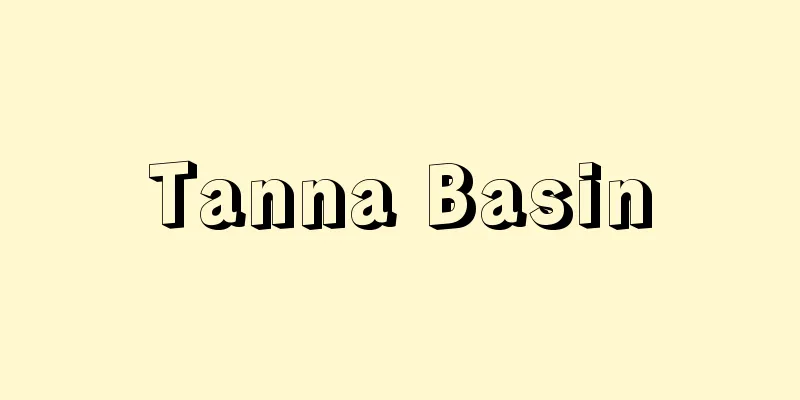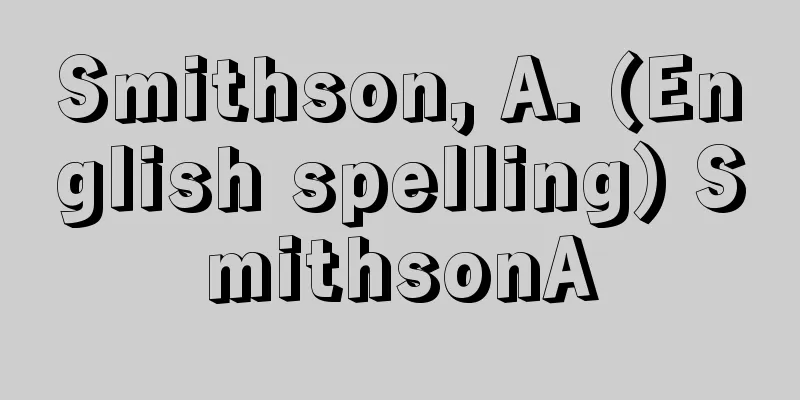Prologue

|
The word prologue comes from the word prologos, which was used in ancient Greek drama to refer to the part of the play that preceded the first appearance of the chorus. Later, the word prologue came to be used to refer to lines that were separated from the main body of the play, foreshadowed the content of the play, provided the audience with information necessary for understanding the play, excused the performance of the play, or spoke on behalf of the author's argument. *Some of the terminology explanations that mention "prologos" are listed below. Source | Heibonsha World Encyclopedia 2nd Edition | Information |
|
…前口上,序詞。古代ギリシア劇において,コロスの最初の登場に先立つ部分を指したプロロゴスprologosという言葉を語源とする。その後,劇の本体とは切り離されて,劇の内容を予告したり,劇の理解について必要な情報を観客に提供したり,劇のできばえについて弁解したり,作者の主張を代弁したりするせりふをプロローグと呼ぶようになった。… ※「prologos」について言及している用語解説の一部を掲載しています。 出典|株式会社平凡社世界大百科事典 第2版について | 情報 |
>>: Promachus yesonicus (English spelling) Promachusyesonicus
Recommend
Turbellaria - Turbellaria
...About 17,000 species are known, including the ...
Cassette tape - kasutotepu (English spelling)
A cassette is a device that contains a magnetic t...
Mariiskii Avtonomnyi Sovetskii Sotsialisticheskii Respublika
…Republic within the Russian Federation. Formerly...
Kim Il Sung University
A national university for training national cadres...
Bessel point - Bessel point
When measuring the dimensions of long, slender obj...
Nothofagus
A genus of the Fagaceae family (illustration) that...
Ogasawara Islands - Ogasawara Islands
A group of islands scattered across the Pacific O...
Enokizu (Nagasaki)
...The central part of the island is dominated by...
Nautical mile
A unit of length used in navigation and aviation. ...
Chilembwe Rebellion - The Chilembwe Flood
In late January 1915, African Christian John Chile...
Kinichi Nakanoshima
Yamada-ryu Sokyo performer and composer. Grandson...
chlamys
...On special occasions, such as festivals, a lon...
Congenital pyloric stenosis - congenital pyloric stenosis
The correct name is congenital hypertrophic pylori...
Amulet - weight
〘 noun 〙 ("o" is a prefix) 1. The act of...
Zrinyi Peter
…Today, he is considered one of the national acti...

![Chuvash [Republic] (English spelling)](/upload/images/67cc341a6ee5a.webp)
![Side [town] - Waki](/upload/images/67cd41216dd2b.webp)






